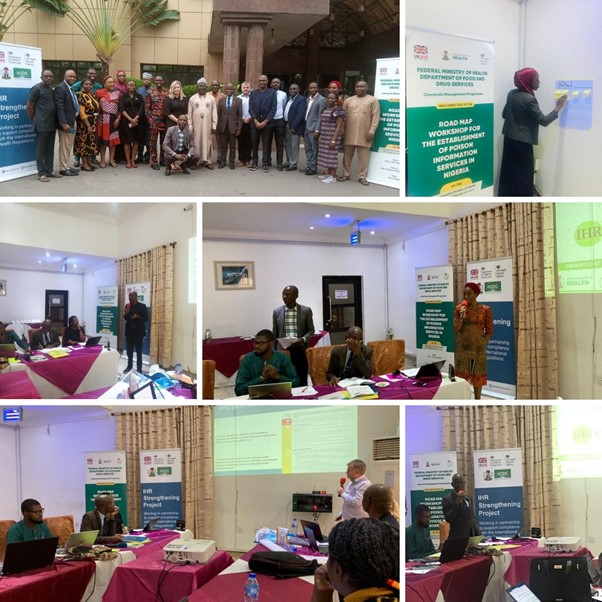 Poisons centres are an integral element of Chemical Events Core Capacities of the WHO International Health Regulations (IHR). A poisons service can act upon the need for contribution and collaboration from across health, public health and chemicals management systems to enable effective health emergency response, public health response and surveillance, and forward planning for the risks of tomorrow. However, developing a poisons service can be complicated.
Poisons centres are an integral element of Chemical Events Core Capacities of the WHO International Health Regulations (IHR). A poisons service can act upon the need for contribution and collaboration from across health, public health and chemicals management systems to enable effective health emergency response, public health response and surveillance, and forward planning for the risks of tomorrow. However, developing a poisons service can be complicated.
The UKHSA’s IHR-SP recently developed and delivered novel methodology for defining a road map for the establishment of effective national poisons services and was previously implemented in Ethiopia.
The road map methodology includes a structured workshop comprised of the following key elements to support countries in the development of their own tailored roadmap:
- Defining the vision and purpose of the roadmap
- Defining the goals
- Objectively defining the questions that need to be answered to achieve the goals
- Define activities to be undertaken based on these questions, and assign activities to specific Ministries, Departments, Agencies (MDAs)
- Define timelines and other key contributors.
The workshop participants typically includes representatives from key authorities responsible for delivering a poisons service, such as the Ministry of Health, healthcare facilities, laboratory experts (if indicated) and other key partners.
This methodology has supported the Nigerian Ministry of Health to formulate an agreed road map with partners for the establishment of the poisons service in the country, elements of which are now in process of being implemented.
The following goals have been identified by the Ministry of Health via the roadmap process:
Goal 1: Toxicovigilance (surveillance for public health)
Goal 2: Poisons information service (provision of clinical advice)
Goal 3: Analytical toxicology and other laboratory services
Goal 4 Clinical toxicology service
Goal 5. Response and Emergency
Goal 6. Monitoring and Evaluation of data
Going forward, UKHSA's I HR-SP will work with the Nigerian MOH and other key stakeholders to support implementation of activities to work towards these key goals with initial support likely to focus on goals 1 and 2.
